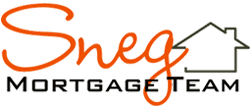Frequently Asked Questions
- Show All
- B Clients
- Costs
- FAQ
- First-time Buyers
- Getting the Lowest Mortgage Rates
- landing page
- LP Investment/Rental property
- Managing Mortgage
- Mortgage Refinancing
- Other Features
- Penalties
- Pre-approval
- Pre-Payment
- Rate
- Refinancing
- Renewal
- Reverse Mortgage
- Self-employed
- Variable Rate Mortgages
If penalty is the obstacle to refinance, what is the difference between fixed rate mortgage to variable rate mortgage?
Penalty size would be the main criteria as to whether you’ll move out of your mortgage and refinance or stay with the current contract until your term is done and your mortgage is up for renewal. With a fixed rate mortgage your penalty may be 8 times (!) bigger than the variable rate mortgage. It’s a huge difference that may void all the advantages in refinancing. There are ways to lower your penalty. Again, its all about the way your initial mortgage has been structured.It sounds too good to be true. How do I know you got me the best deal?
We usually get paid the same for different deals and rates. Our focus is on getting you such a brilliant deal, so you’ll want to share your experience with your friends and family. We love to under-promise and over-deliver.
Length of process?
Typical process with alternative lenders for purchase is between 1-2 weeks.Should I go with a fixed rate or a variable rate?
This is a difficult question which largely depends on your needs and wants, but here are the differences:- A fixed rate mortgage is when the mortgage rate and mortgage payment remains the same for the whole term of the mortgage. An advantage is the consistency, so if you do not like surprises, this may be the style for you. Disadvantages are the much higher penalties for breaking a mortgage, which limits your flexibility when moving to a different house or upgrading to better mortgage.
- Variable rate mortgage is when the mortgage rate moves with fluctuations in the bank’s prime rate. As a result, mortgage payments may vary during the term of the mortgage. A minimum term commitment is often required, usually 3 years. You may have the option to “lock in” the mortgage at a fixed rate during the term with no penalty or additional expenses. Advantages are a much lower rate compared to the fixed rate on offer at the same time the penalty is much lower with maximum flexibility to manage your mortgage and save you money. Disadvantage is that this rate fluctuates.
Should I take a short-term or a long-term mortgage?
For most mortgage shoppes, the options available for mortgages can be very confusing. Terms for mortgages vary from 6-month terms to 10-year terms between variable and fixed rates. Savings can be made by taking a variable or floating rate mortgage. Typically the shorter the term or guarantee of the rate, the lower the rate will be. The upside to a variable rate is the strong potential for interest rate savings. The downside is the fact that clients must accept the interest rate risk without a guarantee. If you are considering a variable rate mortgage you need to look at your own risk tolerance and your cash flow available to deal with potential increased payment. Considering rates and prime projections, a prediction of where prime may be heading, can also be an important factor in this decision. We have the software available on our system to compare your options – Give us a call and we’ll do the math!Should I wait for my mortgage to mature?
No. You should contact us up to 120 days before your mortgage matures so we can secure you the best rate available at that time. Doing this will protect you from any increases before your renewal date. You will also benefit from decreases should they occur. Most lenders send out their mortgage renewal notices only a month prior to renewal, offering existing clients their posted interest rates, which are usually not the best. We will explore all of your options and find the best solution to suit your needs.What are the alternatives to a reverse mortgage?
Alternatives to a reverse mortgage include selling the property, downsizing to a smaller home, or taking out a traditional home equity loan or line of credit. It's important to consider all options and to carefully weigh the pros and cons of each before making a decision.What are the benefits of using a mortgage broker?
Your lending institution will only advise you on their product. You could visit every institution out there, one by one if you had time… Or, you can talk to a mortgage broker who will shop and negotiate the best mortgage for you with their many available lenders, including ones you would not consider on your own. On top of this, a good mortgage broker won’t put your mortgage to sleep for 5 years, they will proactively look for further solutions that will save you more money on top of the fabulous package you got in the first place. This ongoing strategic management of your mortgage file, teamed with using your mortgage as a strong financial tool to address life objectives and future plans, is the real advantage of having a mortgage expert on your side. Our main interest is to take you where you want to be, today and tomorrow, regardless of what life throws at you.What are the costs associated with a reverse mortgage?
There are several costs associated with a reverse mortgage, including origination fees, mortgage insurance premiums, closing costs, and interest.What are the interest rates?
On July 22, 2022, major banks offered 5.44% - 5.54% 5-year termWhile alternative lenders offer between 5.59% - 5.79% for 1 year term

